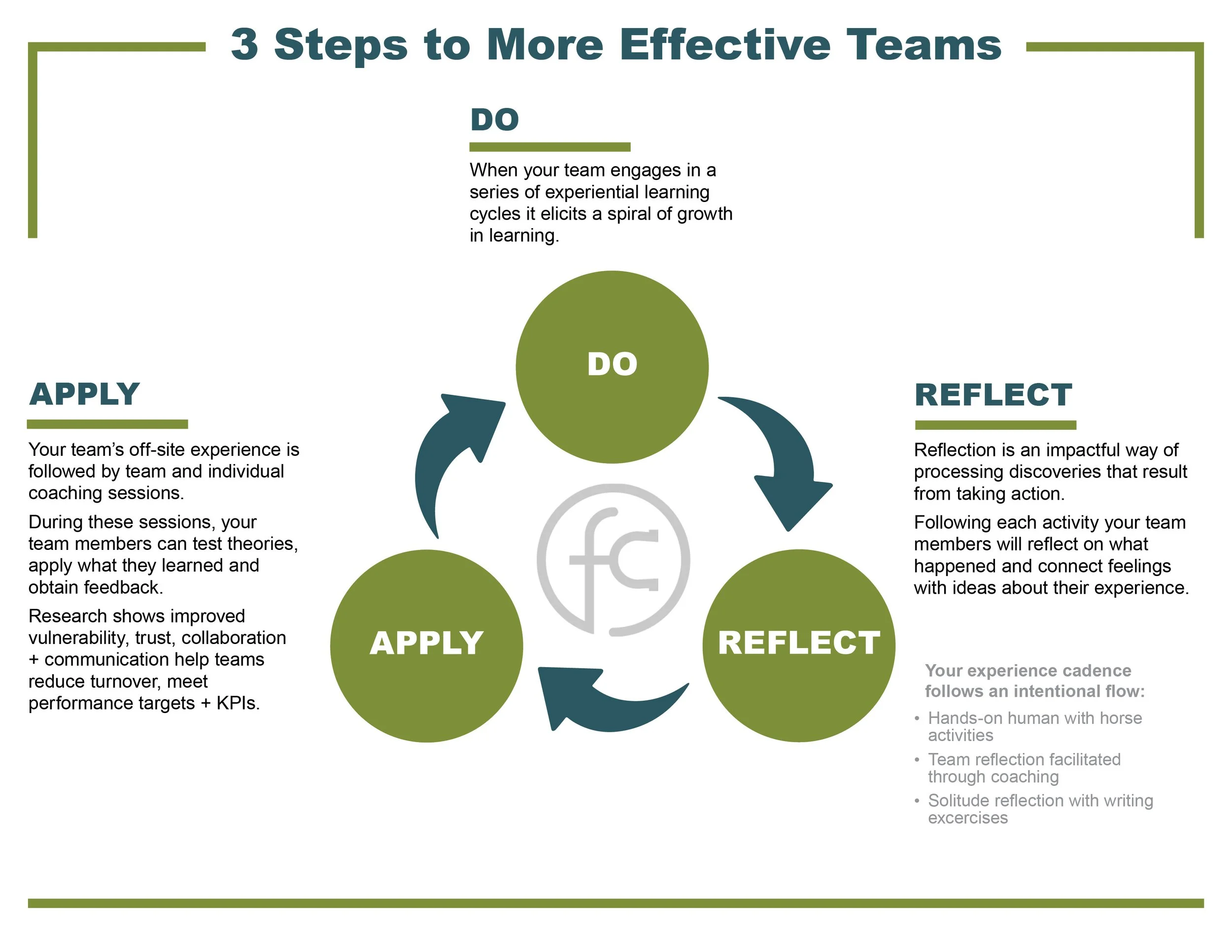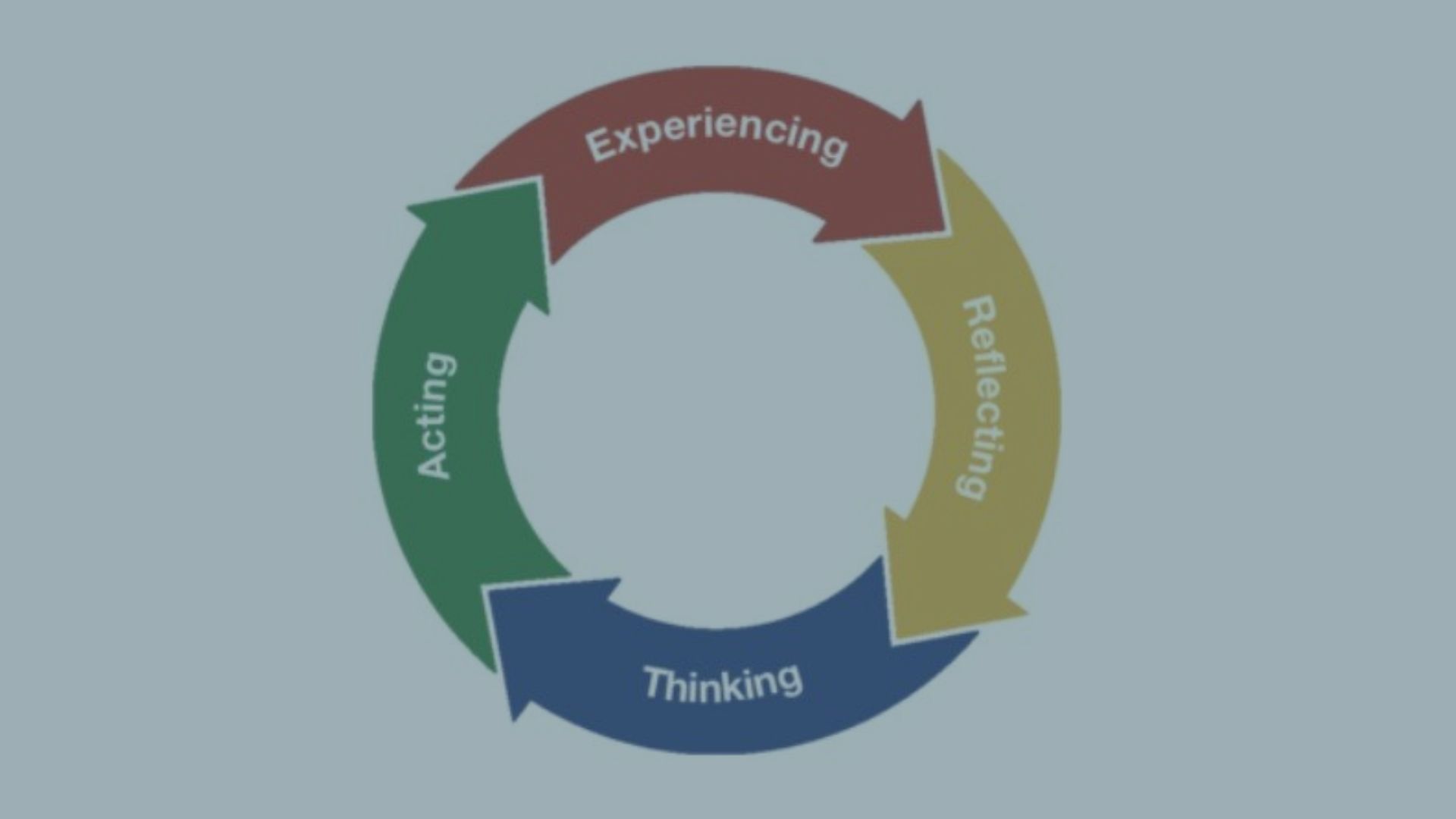What’s the dream result of your professional development efforts?
-
Positive employee engagement
-
Consistent results
-
Productive collaboration
-
Employee retention
Outcomes like these don’t have to be just a dream. Experiential learning is leading the way to
re-imagine professional development that attains meaningful, lasting change in the workplace.
At fullCIRCLE, we collaborate with you to formulate professional development through the lens of experiential learning. This video helps explain the concept. It’s from the developer of experiential learning, David A Kolb and his website The Institute for Experiential Learning.
David A Kolb | The Institute for Experiential Learning
I love how this video demonstrates the process and the power of experiential learning. This learning style has proven to be transformational in the lives of our clients over and over again.
At fullCIRCLE, we encapsulate this learning style through our Do-Reflect-Apply approach.

The Do-Reflect-Apply method of learning for leadership development at fullCIRCLE.
As a courageous leader, are you willing to unlock the power of experiential learning and transform professional development for your organization?
Let’s have a conversation about developing your team and company through life-changing, off-site, ground-based, guided leadership experiences with horses.
What Is Experiential Learning?
Kolb Experiential Learning Theory, developed by David A. Kolb, is widely recognized and influential framework that describes how people learn through experience.
Since learning is the primary process used to navigate life, people can use this process for all forms of learning, development, and change.
Learning occurs in any setting and continues throughout life. The experiential learning process supports performance improvement, learning and development.
